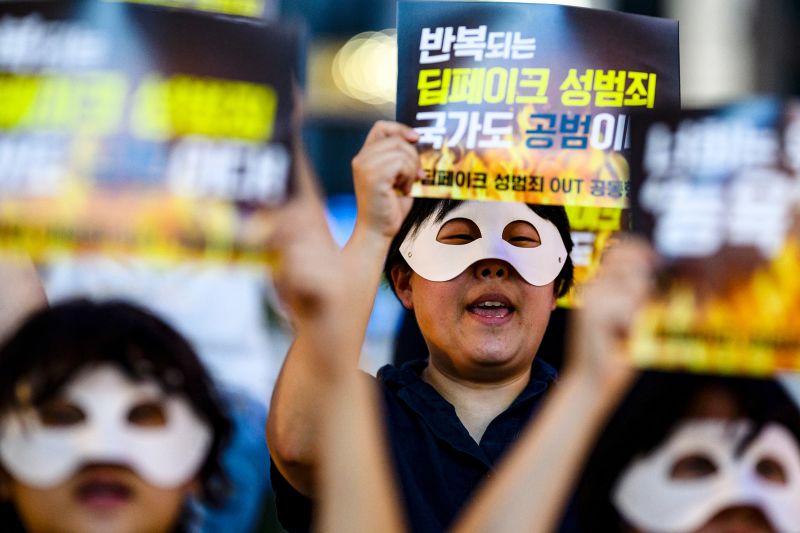
South Korea Cracks Down: Watching or Owning Racy Deepfakes to Become Illegal
South Korea Proposes Legislation to Criminalize Watching or Possessing Sexually Explicit Deepfakes
South Korea is taking a firm stance against the proliferation of sexually explicit deepfake videos by proposing new legislation that would criminalize the watching or possessing of such content. Deepfakes, which are digitally altered videos that use artificial intelligence to superimpose faces onto existing footage, have become a growing concern across the globe due to their potential for misuse and harm.
The proposed legislation in South Korea underscores the government’s commitment to combatting the spread of deepfake pornography, which often involves the realistic manipulation of faces onto explicit content without the consent of the individuals involved. By criminalizing the watching or possession of such material, lawmakers aim to deter individuals from engaging in the consumption of deepfake pornography and to hold offenders accountable for their actions.
The move to criminalize sexually explicit deepfakes in South Korea aligns with broader efforts to address the issue of digital manipulation and its negative implications for society. Deepfake technology has the potential to undermine trust, privacy, and security, as it can be used to create misleading or harmful content that can have far-reaching consequences.
In addition to legal measures, South Korea is also focusing on raising awareness about the dangers of deepfake pornography and promoting digital literacy among its citizens. By educating the public about the risks associated with deepfakes and providing resources to help individuals identify and report such content, the government hopes to empower people to protect themselves and their communities from the harms of digital manipulation.
While the proposed legislation marks a significant step towards combating deepfake pornography in South Korea, challenges remain in effectively enforcing such laws and adapting to the rapidly evolving landscape of digital technology. As deepfake technology continues to advance, policymakers, law enforcement agencies, and tech companies will need to work together to develop robust strategies for detecting and mitigating the spread of harmful content online.
In conclusion, the proposed legislation to criminalize the watching or possessing of sexually explicit deepfakes in South Korea reflects a proactive approach to tackling the growing problem of digital manipulation. By addressing the issue at its source and implementing measures to deter individuals from engaging in the consumption of deepfake pornography, the government is sending a clear message that such behavior will not be tolerated. As technology continues to evolve, continued vigilance and collaboration will be essential in safeguarding individuals and communities from the negative impacts of deepfake content.
